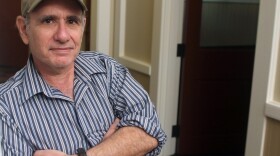In today’s Academic Minute, Dr. Simone Riehl of the University of Tübingen discusses where and when agriculture arose.
Simone Riehl is a senior researcher in archaeobotany at the Institute for Archaeological Sciences at the University of Tübingen. Her research interests include palaeoethnobotany, the emergence and development of agriculture, and palaeoecology and environmental archaeology of the Middle East. She earned her Ph.D. at the University of Tübingen.
Dr. Simone Riehl – The Invention of Agriculture
Centristic evolutionary perspectives influenced our way of thinking on the origins of agriculture for many decades. This is why archaeologists were searching for a presumed “core area” where the smartest of our species would have developed agriculture and distributed the technology to neighboring regions. As a consequence of the “core area” model, archaeobotanists were searching for the oldest domesticated species in the Near East.
In early aceramic archaeological sites located at many different places within the Fertile Crescent, they however found domesticated together with wild cereal species in variable proportions. The comparison of these finds suggests that the transition from cultivating wild to cultivation of domesticated species took several hundreds to thousands of years, rendering the “core area” model useless.
Despite these discoveries, less well-investigated areas, such as modern day Iran, were still considered as regions where agriculture was not developed by indigenous people. The cultural and biological remains from the aceramic site of Chogha Golan in Iran which are available over a sequence of more than 2000 years now suggest that cultivation practices were equally developed at the same time as in the west. These results imply that the use of plants is innate to human behavior which had major impact on what has been commonly considered to be cultural: the development of agricultural systems.
Production support for the Academic Minute comes from Newman’s Own, giving all profits to charity and pursuing the common good for over 30 years, and from Mount Holyoke College.




